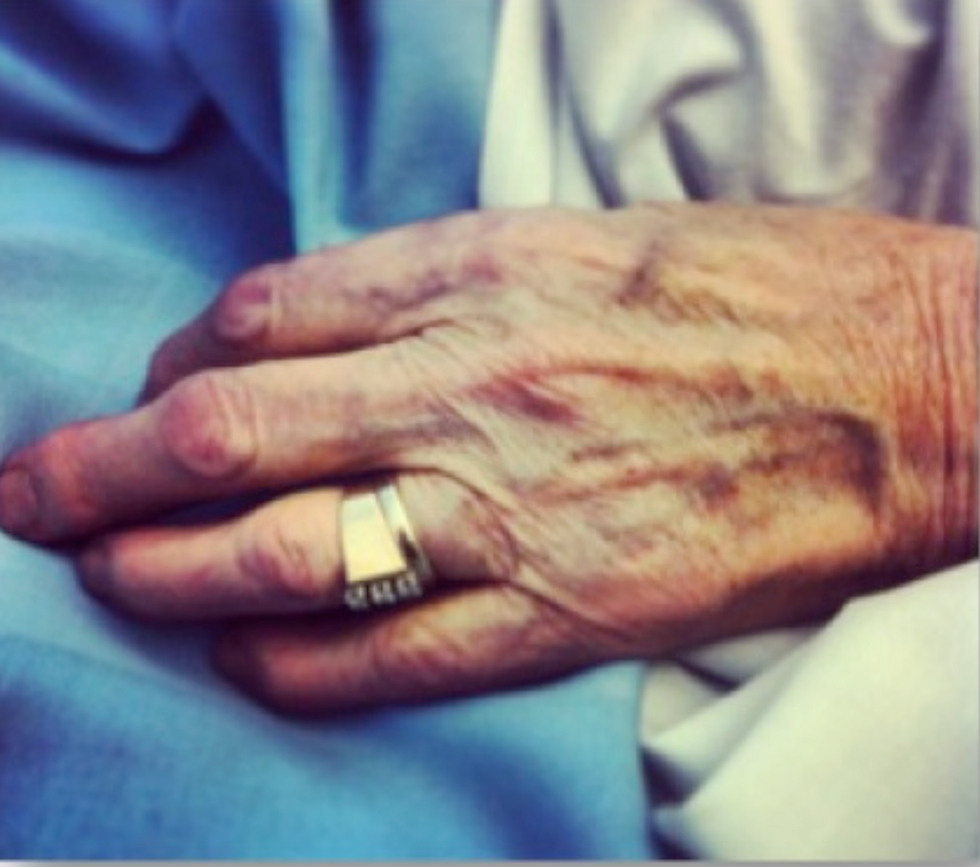Life's Chaotic Interruptions
- Sue Robins

- Apr 28, 2020
- 3 min read

Life’s chaotic interruptions are what shape us. Loss, loss and more loss are hallmarks of life.-Bird’s Eye View, page 218 For the past six weeks, I have sat down every few days in my home office to craft this essay. Well, saying I have a home office is a stretch. I am relegated to a red couch in our condo’s living room, but we all are making do with what we have now. I try to write about how difficult it is to tell a story in the midst of this crisis. But I have been finding it difficult to tell a story in the midst of this crisis. Storytelling is my thing. There are three chapters in my book about patient storytelling during a health crisis. When I had cancer three years ago, I struggled mightily with writing. I could only cough up journal entries to simply document my health experience and express the mad jumble of emotions that I was feeling. A big mess of feeling dead inside, being really angry at other stuff (disability services stuff), and trying, trying, trying so hard. The writing in my journal may have been chaotic, but it also was necessary and important. It laid the foundation for future stories that ended up in my book. What stories can do is neutralize our chaos, but we need time and space to tell them. -Bird’s Eye View, page 218 Here is the difference between documenting experiences and telling a story: documenting experiences is about writing down what happened, often in chronological order. It is, “this happened, and this and then this.” Storytelling tells a condensed version of the chronological experience for context, but it focuses more on details that support your key message. Stories have a message, a theme, a take-away. Whatever you want to call it, all stories have a point to them. My book editor Mish Phillips forced me, in her own gentle way, to always answer these two questions in each chapter of my book: 1. Why did this matter to me? 2. Why should it matter to the readers? These reflective questions are what turns an experience into a story. Experiences need space, time and quiet to reflect upon them to figure out what the lessons are. Now I'm not in active cancer treatment anymore, but I join the whole wide world in the midst of a personal health crisis. Even if we aren’t currently patients, the possibility of being a patient or caregiver looms large right now. Do not underplay or minimize the fact we are all carrying a heavy load, for every single one of us on this earth is in crisis. Alas, I don't have an original thought in my head. I don't have a clue why this pandemic matters to me or what I want my readers to know.
Storytelling is less a work of reporting and more a process of discovery. -Arthur Frank I am not yet at the process of discovery. But that doesn’t meant the reporting is less important. I won’t beat myself up for not being able to craft a fully-formed story. The one thing we all really need is to give ourselves a big break. I’m currently in the stage of pandemic writing that simply includes writing down my experiences and reading other writers who are telling their own stories. These are building blocks for my own storytelling, which will come, if I take the time and I am patient.
Time is something I have in spades right now. Patience, not so much. My stories will come to me if I be still and allow them. Slowly, slowly, your stories will come to you too. Storytelling Prompts: Document in a date book what you did today. This helps you remember. Write about one aspect of your quarantine. Pick one thing. For instance, your quest to secure groceries. Take pictures of the inside of your home, as a ‘day in the life’ exercise. Capture spontaneous snippets of video of your kids or pets. Write freely in a journal, without stopping to edit or censor yourself. Think beyond words – photos, art, music, drama and dance are vessels for storytelling too.
Examples of Pandemic Storytelling:
How Coronavirus has Changed Lives Around the World – a video by Great Big Story
My husband Mike Waddingham’s series of posts about working from home.
QuaranTEEN Films – my teenage son Aaron’s forays into telling his story by video.
My Plague Diary by Eric Reguly
A Twitter thread from Jana Bulman
Singer Chris Mann’s hilarious COVID spoof songs
Dispatches During the Quarantine - encouraging storytelling from youth




Comments